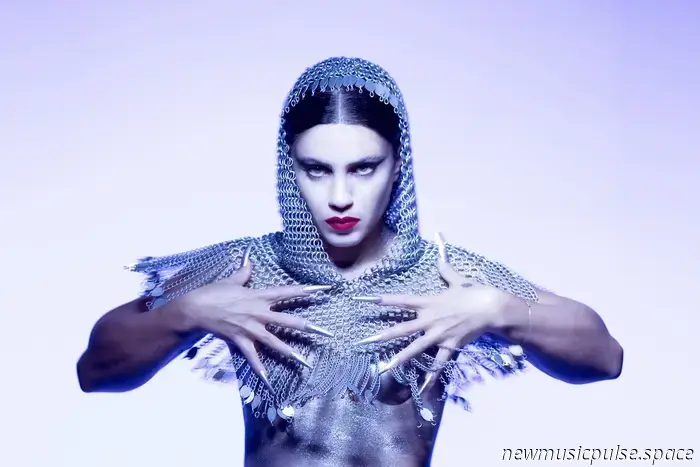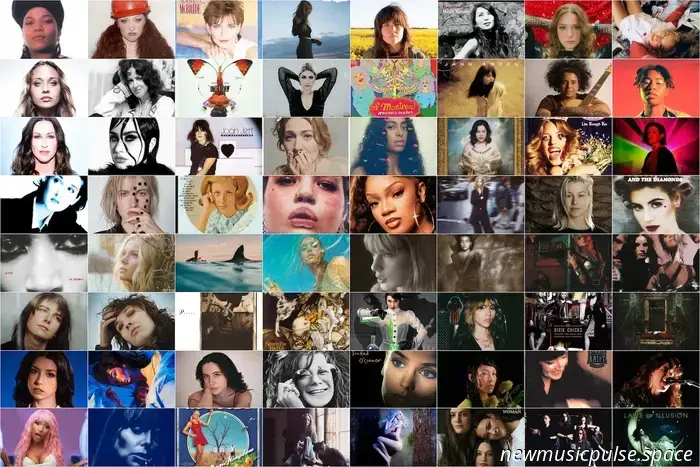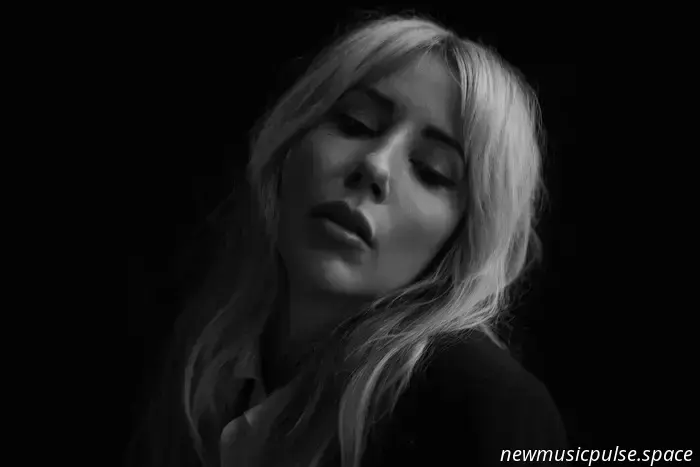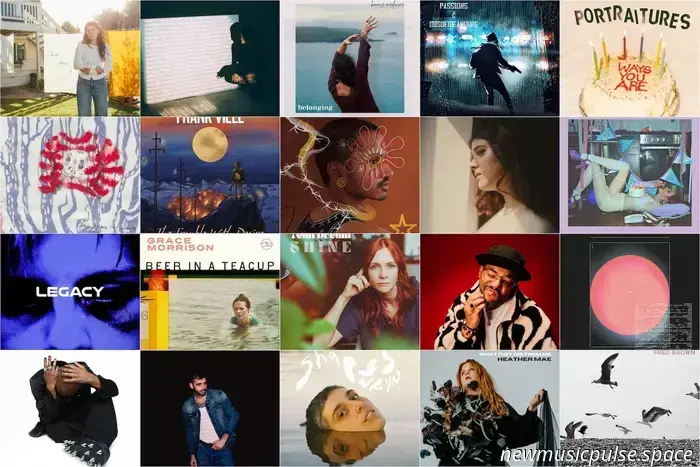
In celebration of Women’s History Month, Atwood Magazine has invited various artists to share essays on themes of identity, music, culture, inclusion, and more.
•• •• •• ••
Today, EMEL (Emel Mathlouthi), a Tunisian/American artist, producer, and activist based in New York City, shares her reasons for assembling a fully female team for her latest album ‘MRA.’ She reflects on the challenges and triumphs that contributed to the final result in a special essay for Atwood Magazine’s Women’s History Month series.
Three years ago, EMEL started writing her fourth studio album, MRA, a captivating blend of ethereal, hip-hop, and indie-pop influences that serves as both a call for compassion and action. At that time, EMEL and her young daughter were staying with her parents in the house where she grew up, overlooking the Mediterranean Sea. ‘MRA’ translates to “woman” in Arabic, a meaning that resonated deeply with her. Having collaborated with influential figures like Iranian filmmaker Shirin Neshat and multimedia artist Laurie Anderson, EMEL understands the strength that comes from working with other women. “I’m not interested in being a muse,” she asserts. “I want to be an artist, with a vision.” This enlightened perspective emphasizes healing through and by women and encourages them to support and trust one another, ultimately disrupting the cycle of patriarchy within a male-dominated industry. Thus, every single collaborator on ‘MRA’ is a woman.
Growing up in Tunisia, EMEL enjoyed a wide range of music, from classical to Art Tatum to Celine Dion. After performing in a metal band in her teenage years, she discovered Joan Baez and the powerful nature of protest songs. In 2010, she became known as the voice of the Arab Spring when her folk-hymnal “Kelmti Horra (My Word Is Free),” once banned, re-emerged as a protest anthem. She later performed the track at the Nobel Peace Prize concert in Oslo. Two years later, while touring internationally in over 25 countries, she held an underground concert in Baghdad, Iraq, and a few years later, an illegal, all-women performance in Iran, as documented in the film No Land’s Song.
For EMEL, presenting her music as art is crucial. She has previously collaborated with Alaïa and Jean-Paul Gaultier for her stage attire and incorporated abstract visuals into her performances. This theatrical and contemporary dance influence has led her to explore genres like electronica, goth rock, and baroque pop. Nowadays, however, she is drawn to hip hop and pop, with the help of co-producers Hannah Vasanth and Lyzza.
“I’ve always dreamed of reaching people’s hearts, but I ultimately support them in owning their destiny and claiming their path,” EMEL expresses. “I consider myself privileged because I have my voice and power in music. When I witness the impact my music has had in various parts of the world and how my songs have aided people in their fight for freedom, I am truly grateful.” MRA is as much about utilizing her voice as it is a call for her fellow women to express themselves freely, with the same opportunities and in the same spaces as men. “I don’t create art for consumption,” she continues. “I hope it transcends time, boundaries, and cultures. Music has the power to change the world.”
•• ••
And Why This Is Much More Than A Record
by EMEL
When I began envisioning MRA, I moved forward without fully realizing it would become the boldest statement of my career.
Initially, my aim was to create something powerful and authentic—something that reflected the weight of ancestral female voices and my aspirations for a world where women can thrive on their own terms. However, as the songs began to take shape, I came to a deeper understanding: this project could evolve into more than just a statement; it should become a movement.
I envisioned MRA as a space where female energy was not just a counterpoint or alternative but the foundation, the framework, the atmosphere. It was not about exclusion but rather coherence. It was about allowing something deeply feminine to emerge, flourish, and ultimately heal, without interruption or filtering.
In an industry where sound and stage decisions are often controlled by men, there exists a subtle violence in being told—explicitly or implicitly—that your power requires interpretation, especially as an Arab African woman. That your vision necessitates a male counterpart to be considered “real.” With MRA, I aimed to avoid translation. I wanted to express ourselves in our own language, which encompassed many voices, raps, and singing in six different languages contributed by 30 creators from 22 diverse regions of the world.
Choosing an all-female team of composers, musicians, producers, engineers, and visual artists presented logistical




Chinese-American producer, singer, and DJ XIE showcases the female artists who have influenced her music and opened doors for her, such as Peggy Gou, LP Giobbi, and others, in a special playlist for Atwood Magazine's Women's History Month series!

In honor of Women’s History Month, Atwood Magazine celebrates the courageous, talented, and trailblazing women in music — from iconic legends to the emerging stars of today — whose artistry has influenced history, shaped generations, and consistently inspires us with songs that uplift, empower, and stand the test of time.

British singer-songwriter Jo Hill combines playful charm with honest expression in "ZOOM OUT," a joyful anthem celebrating self-love and perspective. This song acts as a love letter to both her younger self and her current self, capturing the emotional ups and downs of girlhood, the insights from tough love, and the empowering message of proclaiming, “You got this, babe!”

A filmic ballad filled with sun-drenched recollections, Brie Stoner’s newest single serves as a heartfelt homage to the allure, stories, and bygone romance of Topanga Canyon.

After the launch of Beach Weather’s second album ‘Melt,’ lead guitarist Sean Silverman reflects on exploring Arizona, the band’s evolved sound, and the dynamics of creating in a post-pandemic era.

Atwood's team shares the music they've been enjoying: This week's selection features mary in the junkyard, Bonnie Medicine, Portraitures, Ben L'Oncle Soul & Adi Oasis, Heather Mae, Tean Dream, Frank Viele, SIG SALI, Wryn, Avery Lynch, Kairvina, Fred Brown, Bottle Rockets, JonoJono, The Tempted, Grace Morrison, Binoy, Quentyn, biz barclay., and Indieclimb!
Tunisian-American artist, producer, and activist EMEL (Emel Mathlouthi), who is based in New York City, discusses her decision to produce her latest album 'MRA' with an all-female team, as well as the challenges and struggles encountered along the way to completing the project, in a special essay for Atwood Magazine’s Women’s History Month series!